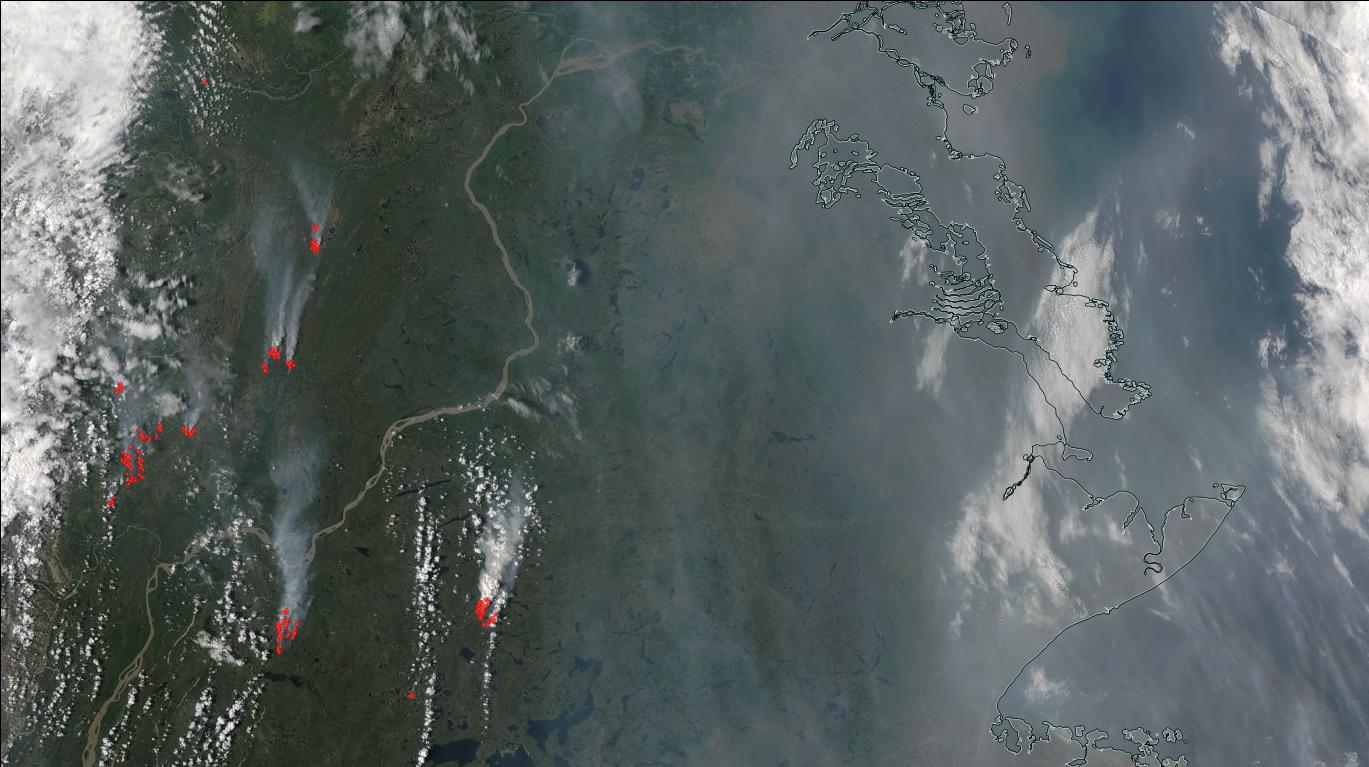Mackenzie Delta Temps 90F As Fires Scorch The Arctic; 215 Active BC Fires Force 10,000 To Flee
EDIT
As large fires continue to burn across the west, the U.S. Interagency Fire Center now has a stated national preparedness level of 4 out of 5 — or the second highest alert rating. So far 2017 has seen 3,593,000 acres burned in the U.S. — which is above the 10 year average. An average that has already been pushed higher due to human-forced warming and an overall lengthening of the fire season.
Further north, British Columbia is suffering a rash of severe fires as extreme heat and high winds are blasting away at vegetation that vigorously regrew when drought conditions retreated earlier this year. Now, 215 active fires are reported as the province mobilizes national military forces and considers making calls for international aid. Presently, 21 large fires are causing considerable havoc throughout BC. Fire officials remain on heightened alert as strong winds, heat, and lightning threaten to make a bad fire situation even worse over the coming days.
Still further north and extending all the way to the shores of the Arctic Ocean, satellite photographs provided by NASA show large wildfires burning through typically frozen regions of Canada’s Northwest Territory and in northern Alaska. Many of these fires are quite vigorous — producing large smoke plumes that have blanked much of the region.

?w=600&h=336
(Fires burning near the Arctic Ocean on July 10, 2017. For reference, bottom edge of frame is 280 miles. Image source: NASA Worldview.)
Such widespread burning over such a large region of North America — extending from California to the Arctic Ocean — has been spurred primarily by record heat building beneath a massive high pressure ridge. In the far North, temperatures approached 90 degrees Fahrenheit just south of the Mackenzie Delta near the Arctic Ocean earlier this week. Over typically cool British Columbia, temperatures have consistently ranged in the 80s and are expected to again heat up to near 90 (F) this week. And in the U.S. Southwest, numerous temperature records were broken over recent days as readings rocketed into the 100s and 110s.
EDIT
https://robertscribbler.com/2017/07/12/massive-wildfires-burn-from-california-to-the-arctic-ocean-as-temperature-records-shatter/
 ?w=600&h=336
?w=600&h=336